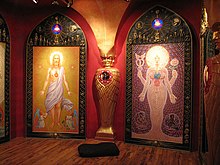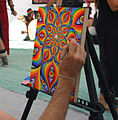This is an old revision of this page, as edited by Ottensteiner (talk | contribs) at 14:19, 7 April 2018 (Undid revision 835227529 by Kleuske (talk) These links were there for a long time already! I only added a couple, so I removed them, and now, since I am at it, I also removed dead links that do not work anymore. Where possible I corrected broken links and rearranged the order. Compare the past history!!!!! Please do not fool around with this where you have no idea what the subject is all about!). The present address (URL) is a permanent link to this revision, which may differ significantly from the current revision.
Revision as of 14:19, 7 April 2018 by Ottensteiner (talk | contribs) (Undid revision 835227529 by Kleuske (talk) These links were there for a long time already! I only added a couple, so I removed them, and now, since I am at it, I also removed dead links that do not work anymore. Where possible I corrected broken links and rearranged the order. Compare the past history!!!!! Please do not fool around with this where you have no idea what the subject is all about!)(diff) ← Previous revision | Latest revision (diff) | Newer revision → (diff)| This article includes a list of general references, but it lacks sufficient corresponding inline citations. Please help to improve this article by introducing more precise citations. (March 2010) (Learn how and when to remove this message) |
Visionary art is art that purports to transcend the physical world and portray a wider vision of awareness including spiritual or mystical themes, or is based in such experiences.

History
The Vienna School of Fantastic Realism, first established in 1946, is considered to be an important technical and philosophical catalyst in its strong influence upon contemporary visionary art. Its artists included Ernst Fuchs, Rudolf Hausner and Arik Brauer among others. Several artists who would later work in visionary art trained under Fuchs, including Mati Klarwein, Robert Venosa, Philip Rubinov Jacobson and De Es Schwertberger.
Definition

Visionary art often carries themes of spiritual, mystical or inner awareness. Despite this broad definition, there does seem to be emerging some definition to what constitutes the contemporary visionary art 'scene' and which artists can be considered especially influential. Symbolism, Cubism, Surrealism and Psychedelic art are also direct precursors to contemporary visionary art. Notable visionary artists count Hilma af Klint, Hieronymous Bosch, William Blake, Morris Graves (of the Pacific Northwest School of Visionary Art), Emil Bisttram, and Gustave Moreau amongst their antecedents.
Schools and organizations
The Vienna School of Fantastic Realism, which includes Ernst Fuchs and Arik Brauer, is also a strong influence on visionary culture. It may also be considered the European version, with the names being interchangeable.
The Society for the Art of Imagination, founded by Brigid Marlin serves as an important portal for visionary art events. More recently, a new wave of visionary artists collaborate to function as modern cooperatives involved in self-publishing and promotion of visionary artists through the internet and via festivals such as Burning Man and Boom Festival, and exhibition/ritual spaces such as Temple of Visions, Tribe 13, Synergenesis and the Interdimensional Art Movement.
Artists
Historic
|
|
|
Contemporary
|
Organizations
- Society for Art of Imagination
- Society of Layerists in MultiMedia
- The VANA (visionary art film) project
Gallery
-
 A painting by Alex Grey
A painting by Alex Grey
-
 Hall of Mirrors,
Hall of Mirrors,
Temples of Humankind, Federation of Damanhur -
 Snowfall in Parallel Universe by George Grie
Snowfall in Parallel Universe by George Grie
See also
- Burning Man
- Interdimensional art
- Fantastic art
- Horror vacui
- Outsider art
- Psychedelic art
- Surrealism
- The Symbolist and Decadent art movement
- Temples of Humankind
- Aetheric Art
References
- ^ What is Visionary Art? by Alex Grey
- Academy of Visionary Art
- Manifesto of Visionary Art by L. Caruana
- Robert Venosa biography
Sources
- Cosmic Art Ramond & Lila Piper (Hawthorne Books) ISBN 0-8015-1774-5, 1975
- Celestial Visitations The Art of Gilbert Williams (Pomegranate Artbooks) ISBN 0-517-53900-4, 1979
- Sacred Mirrors: The Visionary Art of Alex Grey", Carlo McCormick, Inner Traditions International, 1990
- Raw Creation: Outsider Art and Beyond John Maizels,ISBN 0-7148-3149-2, 1996
- The Art of Adolf Wolfli Elka Spoerri, Daniel Baumann and E. M. Gomez, ISBN 0-691-11498-6, 2003
- Nothing Is True - Everything Is Permitted: The Life of Brion Gysin John Geiger, (The Disinformation Company), 130. ISBN 1932857125, 2005
- Fantastic Art (Taschen) ( Schurian, Prof. Dr. Walter) ISBN 978-3-8228-2954-7 (English edition), 2005
- True Visions (Erik Davis and Pablo Echaurren) (Betty Books) ISBN 88-902372-0-1, 2006
- Metamorphosis: 50 Contemporary Surreal, Fantastic and Visionary Artists (beinArt) ISBN 978-0-9803231-0-8, 2007
Bibliography
- 1975 - Cosmic Art Ramond & Lila Piper (Hawthorne Books) ISBN 0-8015-1774-5
- 1979 - Celestial Visitations The Art of Gilbert Williams (Pomegranate Artbooks) ISBN 0-517-53900-4
- 2005 - Fantastic Art (Taschen) ( Schurian, Prof. Dr. Walter) ISBN 978-3-8228-2954-7 (English edition)
- 2006 - True Visions (Erik Davis and Pablo Echaurren) (Betty Books) ISBN 88-902372-0-1
- 2007 - Metamorphosis (beinArt) ISBN 978-0-9803231-0-8
- 2011 - "Positive Creations" (Schiffer Publications) ISBN 978-0-7643-3913-4
- 2016 - El Canto de Abraxas de Álvaro Robles G. (Editorial Salón Arcano) ISBN 978-987-42-2189-6
External links
- Essays and articles
- Museums and galleries
- Visionary Art Gallery
- Society for Art of Imagination
- pod collective : online visionary art community and gallery
- SolPurpose | The Home of Visionary Art
- Temple of Visions Gallery
- Abstract Visionary Art
- Phantastenmuseum Wien
- Lila : Contemporary Visionary art and Medicine Culture
- Iasos Visionary Artists Gallery
- GodConsciousness.com
- Plemora : Sacred Art Centre
- Society of Layerists in MultiMedia
- Portsmouth Art & Cultural Center, Virginia
- Media